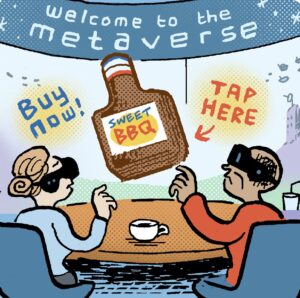 Here’s today’s AdExchanger.com news round-up… Want it by email? Sign-up here.
Here’s today’s AdExchanger.com news round-up… Want it by email? Sign-up here.
More Video Ad Inventory
Google is buying Twitch for $1 billion, VentureBeat first reported on Thursday. Twitch is an aggregation site for streaming video games in real time (think YouTube for serious gaming enthusiasts), where users can broadcast their desktop, Xbox One or PlayStation 4 sessions to online viewers. A quick visit to Twitch will either confuse or thrill you, depending on your interests. But the site is clearly ad-heavy already, and could be a major platform for Google’s programmatic video ad strategy. The San Francisco-based startup hosts more than 50 million monthly users, and the company has raised about $35 million to date. The terms of the deal and official purchase price were not disclosed. The acquisition further expands Google’s video ad inventory beyond YouTube.
More On Margins
Advertisers are increasingly concerned with the tight-lipped practices of their agency trading desks, says an article in The Wall Street Journal. The WSJ points to the programmatic exchange space, where it says advertisers want to know where their money is going and if agency holding companies are making a profit in the margins. Xaxis is vocal about the profits it makes, but Omnicom’s admission to marking up media during Tuesday’s earnings call caused a bit of a stir. The devil in in the details here, as each holding company looks to align itself on one side of the media markup line or the other (or avoid the question altogether). The Association of National Advertisers (ANA) says it’s on marketers to seek clarity from their agencies on how their ad spend is being managed. Read more via the WSJ. For its marketer members, the ANA released a white paper on agency trading desks in 2011.
Matching Metrics
Tracking click-through rates is an imperfect way to measure digital campaigns, writes SimpleReach CEO Edward Kim for Digiday. But, he writes, “Let’s avoid letting ‘engagement time’ become the new metric of choice.” With the rise of native advertising and an increasingly complex digital ad landscape, Kim says metrics should always be goal-specific. “If an e-commerce brand is using content to drive sales or subscription sign-ups, then neither time nor sharing should be the key metric,” he writes. “Instead, the brand should focus on the only metric that really matters: conversions.” Read on.
Orange Sells Ad Network
Unanimis, which was a wholly owned UK-based ad network of Orange France Telecom Group, has sold itself to Switch, according to ExchangeWire’s Ronan Shields. Read more. On Unanimis’ website, CEO Tom Barnett of ad server company Switch says in a release, “The acquisition will enable both entities to build on their strengths. .. The winning combination of Switch’s innovative technology and Unanimis’ top agency trading relationships should deliver excellent growth for the company.” More. MediaTel reports that Orange UK mobile inventory will still be available through Unanimis. Reading the telecom tea leaves: SingTel is buyingad networks. Orange is selling them. What gives? AppNexus made a deal with Orange in 2012 to power Orange’s European ad exchange.
Native’s Bad Rap
A recent IAB study on industry perceptions of native advertising is one of the largest to date, according to ZDNet. TripleLift sponsored the study, titled “Getting Sponsored Content Right: The Consumer View,” which surveyed 5,000 consumers of online news on the effectiveness of native advertising in general, business and entertainment news. Perhaps unsurprisingly, results showed big benefits for brands but potential risks for publishers. Sixty-two percent of respondents said native content does nothing to enhance a publisher’s reputation. At stake is credibility. Read more.
Programmatic Game Plan
Writing for Forbes, Simulmedia CMO David Cooperstein makes a case for programmatic best practices. Cooperstein calls programmatic “the best game in town for managing ad prices,” but also alludes to inherent placement problems. Successful programmatic marketing, he says, is contingent on transparency in pricing, inventory, insertion and data. Automated processes and buy-side tools are firmly established in search advertising and have a strong footing in display, according Cooperstein, and next up is digital video and TV. “But it will take time to see programmatic become the de facto buying process across all media types,” he adds. Read on.
But Wait. There’s More!
- New Additions To Google Maps – Google Maps blog
- BSkyB To Buy Italian And German Units Of 21st Century Fox – The NY Times
- Zillow In Advanced Talks To Buy Rival Trulia – WSJ (subscription)
- Instagram In-App Pop-Ups Ask How You Feel About Its Advertisers – Ad Age
- Five Reasons CMO Alliances With C-Suite Peers Fail, Part 1 – Laura McClellan, Gartner
- IgnitionOne Introduces Analytics Enhancements To Its DMS – press release
- Why Isn’t Facebook Bragging About Its Billion-Dollar App Ad Business? – Re/code












